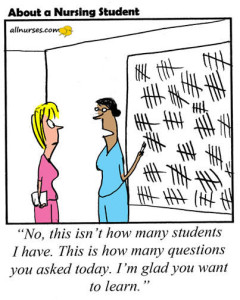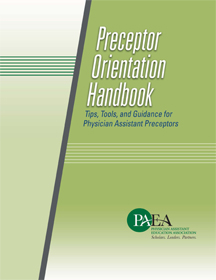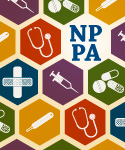December 9th, 2015
Be a Quality Preceptor: Our Legacy Depends On It
Bianca Belcher, MPH, PA-C
 The PA brand is known for its excellent clinical care, reliability, and a keen ability to connect with patients. I feel strongly that as a practicing PA it is part of my duty to the profession to ensure that graduating PAs maintain that legacy. I sometimes worry that expanding too quickly will dilute our profession. Flooding the field with intelligent young PAs who perform well in the classroom but lack meaningful experience in caring for or relating to patients changes our professional identity. As practicing PAs (and other providers that precept our students), we must do our part to help prevent this by giving each and every student who rotates with us a quality experience. I precept several students each year and am no stranger to the amount of extra time and effort it requires, but we can’t forget that these students will soon be certified and could be taking care of our friends and family.
The PA brand is known for its excellent clinical care, reliability, and a keen ability to connect with patients. I feel strongly that as a practicing PA it is part of my duty to the profession to ensure that graduating PAs maintain that legacy. I sometimes worry that expanding too quickly will dilute our profession. Flooding the field with intelligent young PAs who perform well in the classroom but lack meaningful experience in caring for or relating to patients changes our professional identity. As practicing PAs (and other providers that precept our students), we must do our part to help prevent this by giving each and every student who rotates with us a quality experience. I precept several students each year and am no stranger to the amount of extra time and effort it requires, but we can’t forget that these students will soon be certified and could be taking care of our friends and family.
I urge all PAs to open up their practices to one or more students from a local/regional program (a list of programs can be found here). Share your pearls with them. Mentor them. Help create a positive learning environment for them to gain not only experience, but also (and maybe more importantly) a sense of responsibility. Your efforts will create the foundation that allows our high-quality PA brand to remain potent and durable. The investment is worth it.
PA Preceptor Handbook (Physician Assistant Education Association membership required for e-version or you can request from your affiliate PA institution):

; [/php]/images/AU000_bbelcher.jpg)


You are right that continued high quality clinical education is a key to future success. It is under the guidance of these dedicated teacher/clinicians that a future PA is able to put together the classroom work with the practical to understand their role going forward. However, I question whether the programs are “being forced to seriously consider” lowering their standards. Nobody is forcing them. They may well be concerned that their business model may be in jeopardy in this era of rapid expansion of schools. I advocate for continued focus on real clinical experience prior to PA school in addition to the continued work of dedicated preceptors during PA education to ensure future quality.